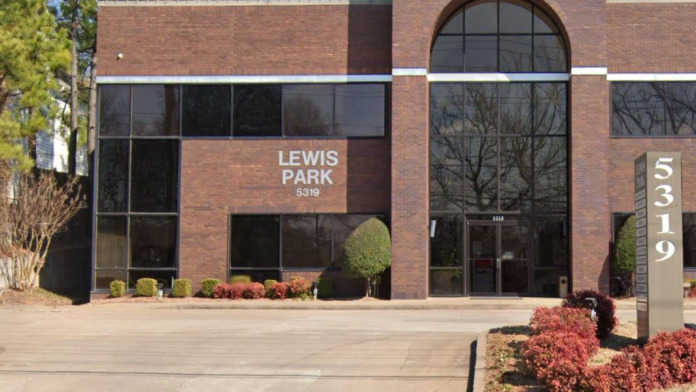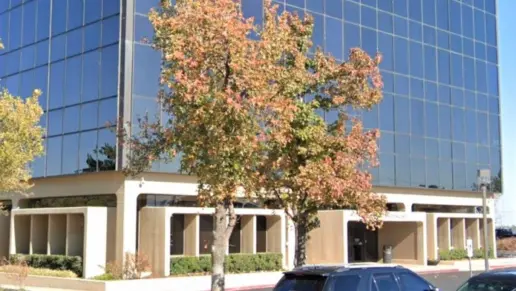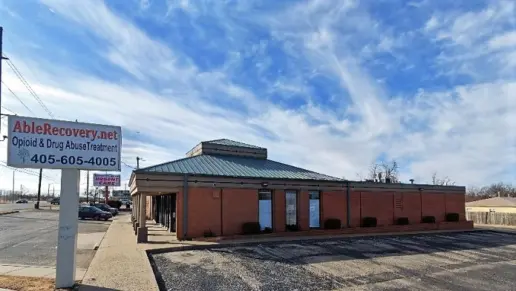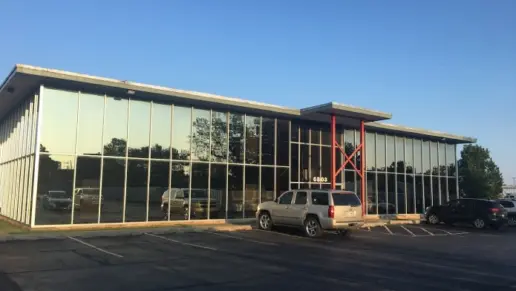Palmer has the best program and the best people. Thanks to them I never gave up, not even on my darkest days. Thank you for giving me a new chance at life.
About Palmer
Specialty rehab programs at Palmer include tailored care focusing on women's specific needs and experiences, gender-specific addiction treatment addressing unique challenges faced by men, and age-appropriate treatment for teens addressing adolescent-specific issues.
Patients at Palmer will find the residential setting creates an immersive environment promoting full engagement in recovery away from daily triggers.
Palmer has received accreditations from CARF.
 Payment Options
Payment Options
Medicaid
Sliding scale payment assistance
Medicare
Free
Financial aid
 Levels of Care
Levels of Care
 Outpatient
Outpatient
Clients attend weekly sessions for 12 to 15 weeks to address issues they are experiencing in dealing with drug use and behaviors and skill deficiencies that are common to drug use. The regular services include one weekly group session and/or one weekly family group session and/or one individual/family session. The program provides the client with drug refusal, problem solving, anger awareness and management, communication and effective coping skills to enhance their social support and recovery.
 Intensive Outpatient
Intensive Outpatient
This is an intensive program that focuses on bringing stability to the client and his or her family by providing intense education and counseling. The structured program provides 9 hours of treatment weekly for approximately 6 weeks. The program is designed to provide essential education and treatment components while allowing clients to apply their newly acquired coping skills within their real life environments.
 12-step
12-step
 Inpatient
Inpatient
 Aftercare support
Aftercare support
 Programs
Programs
 Adolescence program
Adolescence program
 Adult program
Adult program
 Program for men
Program for men
 Program for women
Program for women
 Young adult program
Young adult program
 LGBTQ program
LGBTQ program
 Military program
Military program
 Postpartum program
Postpartum program
 HIV/AIDS program
HIV/AIDS program
 Settings & Amenities
Settings & Amenities
-
Residential setting
-
Private setting
 Treatment
Treatment
 Alcoholism
Alcoholism
The goal of treatment for alcoholism is abstinence. Those with poor social support, poor motivation, or psychiatric disorders tend to relapse within a few years of treatment. For these people, success is measured by longer periods of abstinence, reduced use of alcohol, better health, and improved social functioning. Recovery and Maintenance are usually based on 12 step programs and AA meetings.
 Drug Addiction
Drug Addiction
To address the issues of addiction, each drug rehab in Oklahoma is tailored to meet the individual's needs. Treatment may occur in a residential or outpatient setting, and may last from a few days to several months.
 Dual Diagnosis
Dual Diagnosis
Many of those suffering from addiction also suffer from mental or emotional illnesses like schizophrenia, bipolar disorder, depression, or anxiety disorders. Rehab and other substance abuse facilities treating those with a dual diagnosis or co-occurring disorder administer psychiatric treatment to address the person's mental health issue in addition to drug and alcohol rehabilitation.
 Mental Health and Substance Abuse
Mental Health and Substance Abuse
A combined mental health and substance abuse rehab has the staff and resources available to handle individuals with both mental health and substance abuse issues. It can be challenging to determine where a specific symptom stems from (a mental health issue or an issue related to substance abuse), so mental health and substance abuse professionals are helpful in detangling symptoms and keeping treatment on track.
 Opioid Addiction
Opioid Addiction
Opioid rehabs specialize in supporting those recovering from opioid addiction. They treat those suffering from addiction to illegal opioids like heroin, as well as prescription drugs like oxycodone. These centers typically combine both physical as well as mental and emotional support to help stop addiction. Physical support often includes medical detox and subsequent medical support (including medication), and mental support includes in-depth therapy to address the underlying causes of addiction.
 Clinical Services
Clinical Services
 Family Therapy
Family Therapy
Substance abuse involves not only the individual struggling with drug use but family members and significant others nearest to the client. Palmer works with the entire family whose lives have been turned upside down by substance abuse. Palmer’s treatment programs are designed to help stop the cycle of substance abuse so often seen in families today.
 Group Therapy
Group Therapy
Group therapy is any therapeutic work that happens in a group (not one-on-one). There are a number of different group therapy modalities, including support groups, experiential therapy, psycho-education, and more. Group therapy involves treatment as well as processing interaction between group members.
 Individual Therapy
Individual Therapy
In individual therapy, a patient meets one-on-one with a trained psychologist or counselor. Therapy is a pivotal part of effective substance abuse treatment, as it often covers root causes of addiction, including challenges faced by the patient in their social, family, and work/school life.
Nutrition Therapy
Nutrition therapy, aka medical nutrition therapy (MNT), is a way of treating physical, emotional, and medical conditions through diet. Specific dietary plans are designed by professional nutritionists or registered dietitians, and patients follow them in order to positively affect their physical and mental health.
 Trauma Therapy
Trauma Therapy
Trauma therapy addresses traumatic incidents from a client's past that are likely affecting their present-day experience. Trauma is often one of the primary triggers and potential causes of addiction, and can stem from child sexual abuse, domestic violence, having a parent with a mental illness, losing one or both parents at a young age, teenage or adult sexual assault, or any number of other factors. The purpose of trauma therapy is to allow a patient to process trauma and move through and past it, with the help of trained and compassionate mental health professionals.
 Dialectical Behavior Therapy
Dialectical Behavior Therapy
Addiction treatment in Oklahoma may include dialectical behavior therapy. This evidence based approach teaches you how to improve relationships, manage your emotions, and learn healthy ways to deal with stress. Treatment includes one on one sessions with a therapist and group skills application sessions.
 Cognitive Behavioral Therapy
Cognitive Behavioral Therapy
If you participate in cognitive behavioral therapy in Oklahoma, you can expect to attend somewhere between five and 20 sessions. This short term method is an effective way to learn healthy coping strategies that help you change your thinking and behavior patterns.
 Motivational interviewing
Motivational interviewing
 Couple Therapy
Couple Therapy
 Accreditations
Accreditations

CARF
The Commission on Accreditation of Rehabilitation Facilities (CARF) is a non-profit organization that specifically accredits rehab organizations. Founded in 1966, CARF's, mission is to help service providers like rehab facilities maintain high standards of care.
CARF Accreditation: Yes



